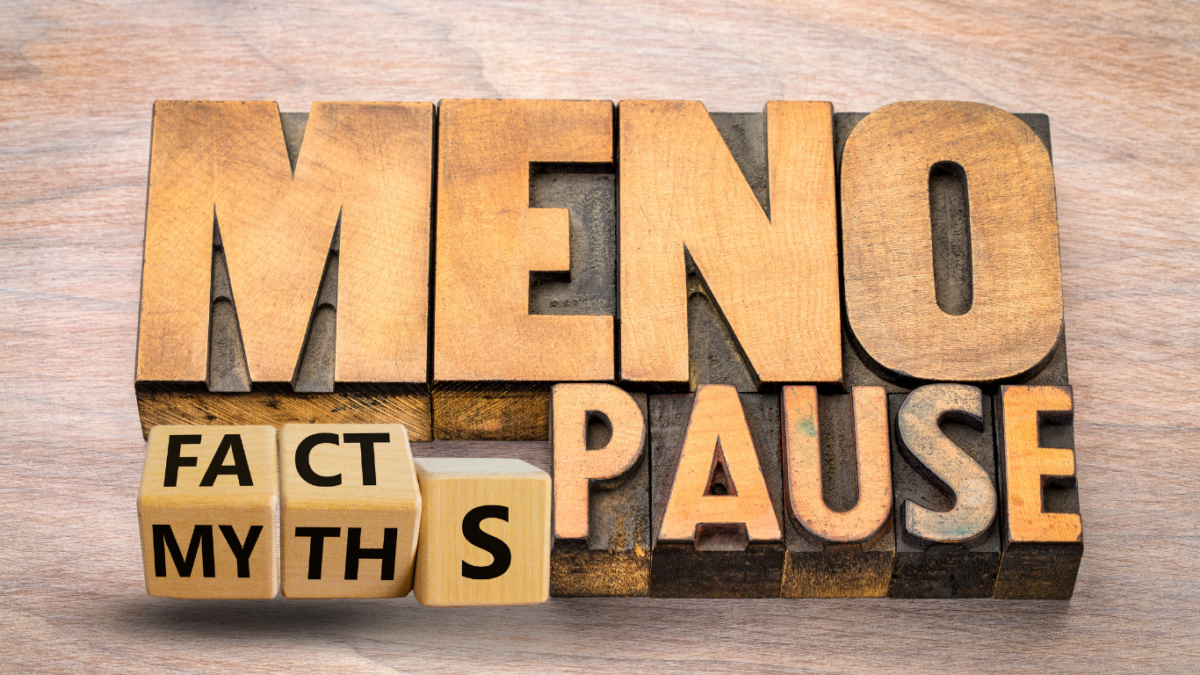10 Things You Need to Know About Menopause

Hey there, ladies! Guess what we’re unraveling today? Menopause – the unsung rite of passage that sneaks up on us like that last piece of chocolate we forgot was in the fridge. (Yes, we all have that secret stash, don’t deny it!). But seriously, why does the word ‘menopause’ seem to echo like it’s announced by a scary movie narrator?
Well, it’s time to switch the narrative! Menopause is not the end of the world. It’s just a new chapter in the amazing book of You. And guess what? We’re here to make sure it’s a page-turner full of knowledge, self-love, and yes, some laughter (because why not?).
So, grab your cup of tea and let’s chat like old friends about the ins and outs of menopause. Let’s dive into the 10 things you need to know about this adventurous voyage. Spoiler: You’re not alone, and you’re going to rock this!
Onward, mighty goddesses! 🌸
- Menopause Isn’t an Overnight Thing
Firstly, it’s crucial to understand that menopause is not a sudden event; it’s a process. It usually begins with a phase called ‘perimenopause,’ which can start as early as your late 30s or early 40s. During this time, your hormone levels will start to fluctuate, causing irregular periods and other physical and emotional changes. It’s only when you haven’t had a menstrual cycle for 12 consecutive months that you’re considered to have officially reached menopause.
- It’s Not Just About Hot Flashes
When we think of menopause, we often picture a woman frantically fanning herself amidst a hot flash. While hot flashes are indeed a common symptom, they’re not the only one. Other symptoms can include night sweats, mood swings, sleep problems, a slower metabolism, thinning hair, dry skin, and changes in sexual desire or comfort. Remember, each woman’s experience is unique, so your symptoms may differ from those of others.
- Menopause Can Affect Your Mental Health
Menopause can also take a toll on mental health. Hormonal changes can lead to mood swings, anxiety, and even depression. Some women might feel a sense of loss or sadness about this new phase of life. Don’t be shy about seeking help. Talk to your doctor, or consider therapy. And remember, it’s okay to discuss your feelings with family and friends – you’re not alone.
- Hormone Replacement Therapy (HRT) Can Help, But It’s Not For Everyone
Hormone Replacement Therapy (HRT) can be a game-changer for some women, relieving many uncomfortable symptoms of menopause. But it’s not for everyone (check out our recent blog on on Non-Hormonal Approaches to Manage Hot Flashes and Night Sweats as published by NAMS). There are risks associated, particularly for those with certain health histories, such as breast cancer or heart disease. Be sure to have a thorough discussion with your doctor about whether HRT is right for you.
- Your Diet Matters More Than Ever
What you eat during menopause can significantly impact how you feel. Foods rich in calcium and Vitamin D are great for bone health, while phytoestrogen-containing foods like soy and flaxseeds may help with hot flashes. On the flip side, spicy foods, caffeine, and alcohol might worsen some symptoms. This is an excellent time to revisit your diet and ensure it’s balanced and nutritious.
- Exercise is Your New Best Friend
Regular exercise can work wonders during menopause. It helps manage weight, keeps your heart healthy, boosts mood, and can even alleviate some menopause symptoms. Whether it’s yoga, strength training, cardio, or just a daily walk, find an activity you love and stick with it. Your body will thank you.
- Your Sex Life Isn’t Over
Despite changes in libido and vaginal dryness that some women experience during menopause, your sex life isn’t destined to end. There are plenty of ways to maintain or even enhance your sexual health during this phase. Lubricants and vaginal moisturizers can combat dryness, while open communication with your partner about your changing needs can foster
- Bone Health Needs Attention
Guess what, ladies? Our fabulous skeletons need some extra love during menopause. Who knew, right? When estrogen levels drop, bones might get more fragile. So, it’s essential to give them what they need. Calcium and vitamin D, come on down! You’re the stars of the show. Milk, leafy greens, almonds, and a little bit of sunlight – they’re all besties for your bones. And check with your doc about whether you might need supplements. No one’s got time for fragile bones!
- Social Support is Key
Alright, this one’s huge. Sometimes, menopause can make you feel like you’re on an emotional roller coaster – without the fun part. So, it’s super important to surround yourself with people who get it. Friends, family, support groups, or even online communities – find your tribe. When you need to vent, or just when you need someone to bring you ice cream – having your squad around can make all the difference. So, don’t be shy to reach out!
- Stay Informed and Take Charge of Your Health
Alright, last but certainly not least – be your own advocate! With menopause, there’s a lot of hearsay and outdated advice being thrown around. Aunt May’s weird concoction might not be the golden ticket. But guess what? You have the power to educate yourself. Research, talk to your doctor, and know your options. Make choices that are right for you and your body. You’re the boss, applesauce!
And there you have it, my fellow warriors! A cheat sheet of ten things you need to know about menopause. This journey might have its twists and turns, but with knowledge, support, and some good old self-love, we’ve got this! Go rock menopause like the queens you are! 🌟
Feel free to share this with anyone who’ll benefit from this.